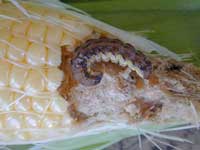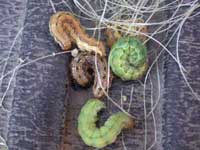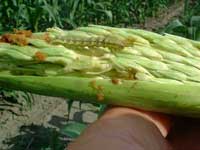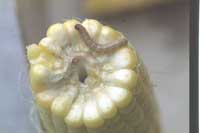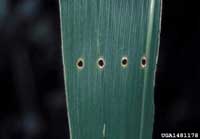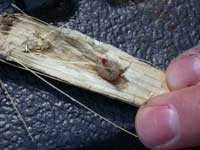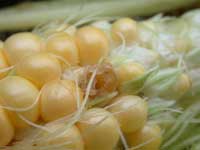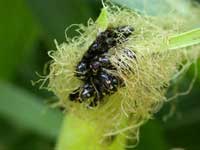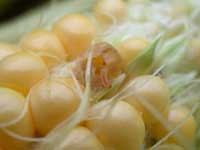Extension > Garden > Diagnose a problem > What's wrong with my plant? > Vegetable > Sweet corn > Chewing damage on kernels
Sweet corn > Ear > Chewing damage on kernels
1 of 3
Corn Earworm
Helicoverpa zea
- Larvae feed on the kernels, especially at the tip of the ears
- Corn is vulnerable to CEW larval feeding from row-tassel to 100% silk
- Fully grown larvae are about 2 inches long and develop a wide range of colors from pale green to pink to almost black
- More information on Corn Earworm
2 of 3
European Corn Borer
- Kernels partly or completely chewed; brown droppings (excrement) is usually present
- Stalks can fall over ("lodge")
- Small holes should be evident on stalks, sometimes with brown frass coming out of the holes
- Leaves have small holes, or "shot-holes"
- Larvae are light brown or pinkish gray in color with round dark spots on each body segment. Mature larvae are about 1 inch long
- More information on European Corn Borer
3 of 3
Sap Beetles
Carpophilus lugubris and Glischrochilus quadrisignatus
- Individual kernels are chewed, and some kernels appear hollowed out
- Adult beetles are small (1/8 - 1/4 inch long), oval, and black or brownish, sometimes colored with orange or yellow
- Small yellowish or pinkish-white grubs may be found in ear tips along with adults
- Can be found from silk to ear maturity
- More information on Sap Beetles



